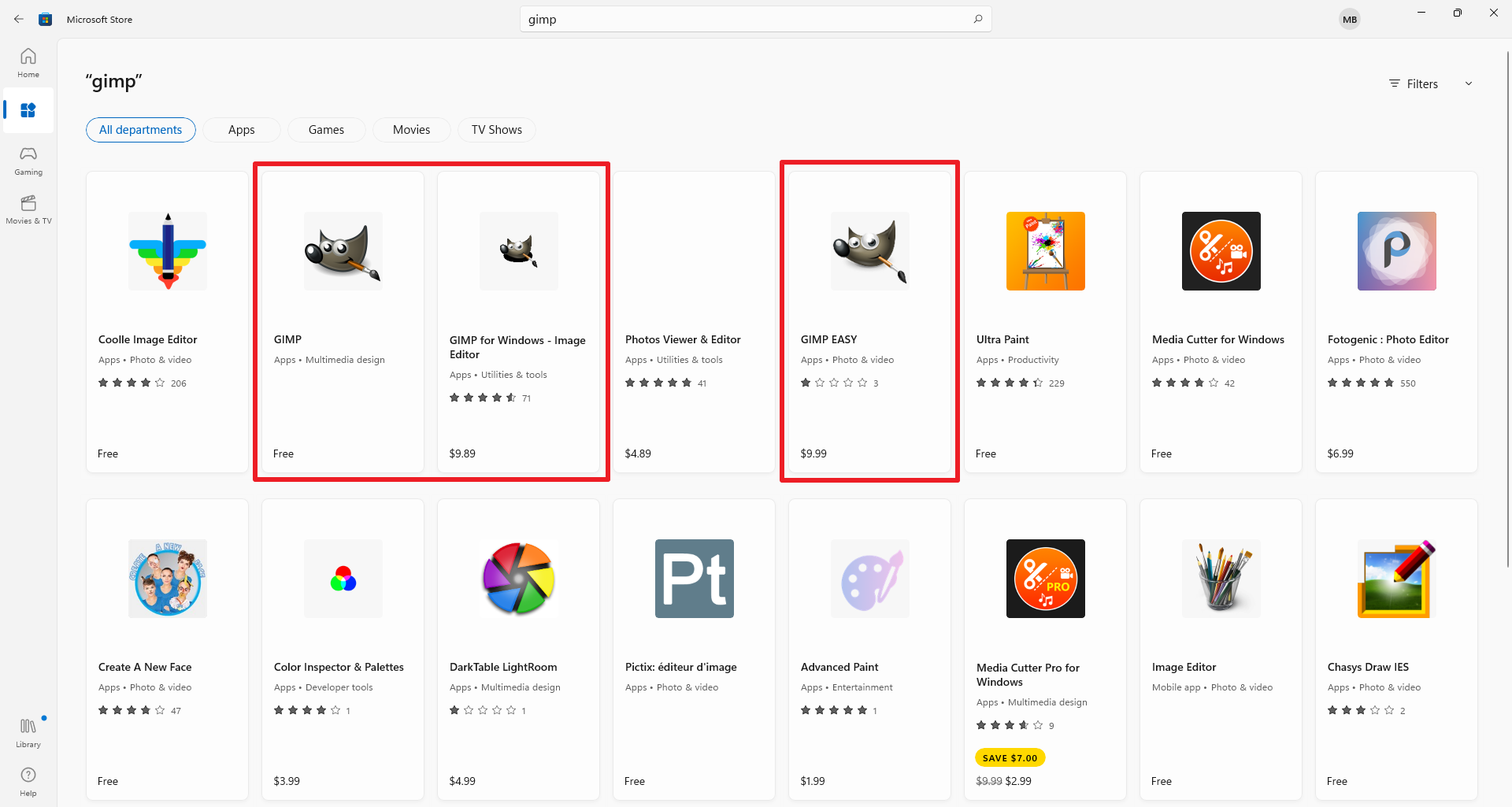Microsoft updated the Microsoft Store policies on June 16, 2022. One of the changes prohibits publishers from charging fees for software that is open source or generally available for free. Another that irrationally high pricing is used on the store.

If you have been to the Microsoft Store in the past couple of years, you may have noticed that it is home to more and more open source and free products. While that would be a good thing if the original developer would have uploaded the apps and games to the store, it is not, because the uploads have been made by third-parties.
Even worse is the fact that many of these programs are not freely available, but available as paid applications. In other words: Microsoft customers have to pay money to buy a Store version of an app that is freely available elsewhere. Sometimes, free and paid versions exist side by side in the Store.
Having to pay for a free application is bad enough, but this is not the only issue that users may experience when they make the purchase. Updates may be of concern as well, as the copycat programs may not be updated as often or as quickly as the source applications.
Microsoft notes under 10.8.7 in the updated Microsoft Store Policies:
In cases where you determine the pricing for your product or in-app purchases, all pricing, including sales or discounting, for your digital products or services must:
Comply with all applicable laws, regulations and regulatory guidelines, including without limitation, the Federal Trade Commission Guides Against Deceptive Pricing.
Not attempt to profit from open-source or other software that is otherwise generally available for free, nor be priced irrationally high relative to the features and functionality provided by your product.
The updated section confirms the new policies. Open source and free products may not be sold anymore on the Microsoft Store, if generally available for free, and publishers are not allowed to set irrationally high price tags for their products anymore. The developers of open source and free applications may charge for their products on the Microsoft Store, the developer of Paint.net does that, for example.
If Microsoft enforces the policies, numerous applications will be removed from the Store. Developers could report applications to Microsoft before, but the new policies give Microsoft control over application listings and submissions directly.
Now You: have you used the Microsoft Store in the past? (via Deskmodder)
Thank you for being a Ghacks reader. The post Microsoft Store: no astronomical pricing and paid open source or free copycat applications anymore appeared first on gHacks Technology News.
